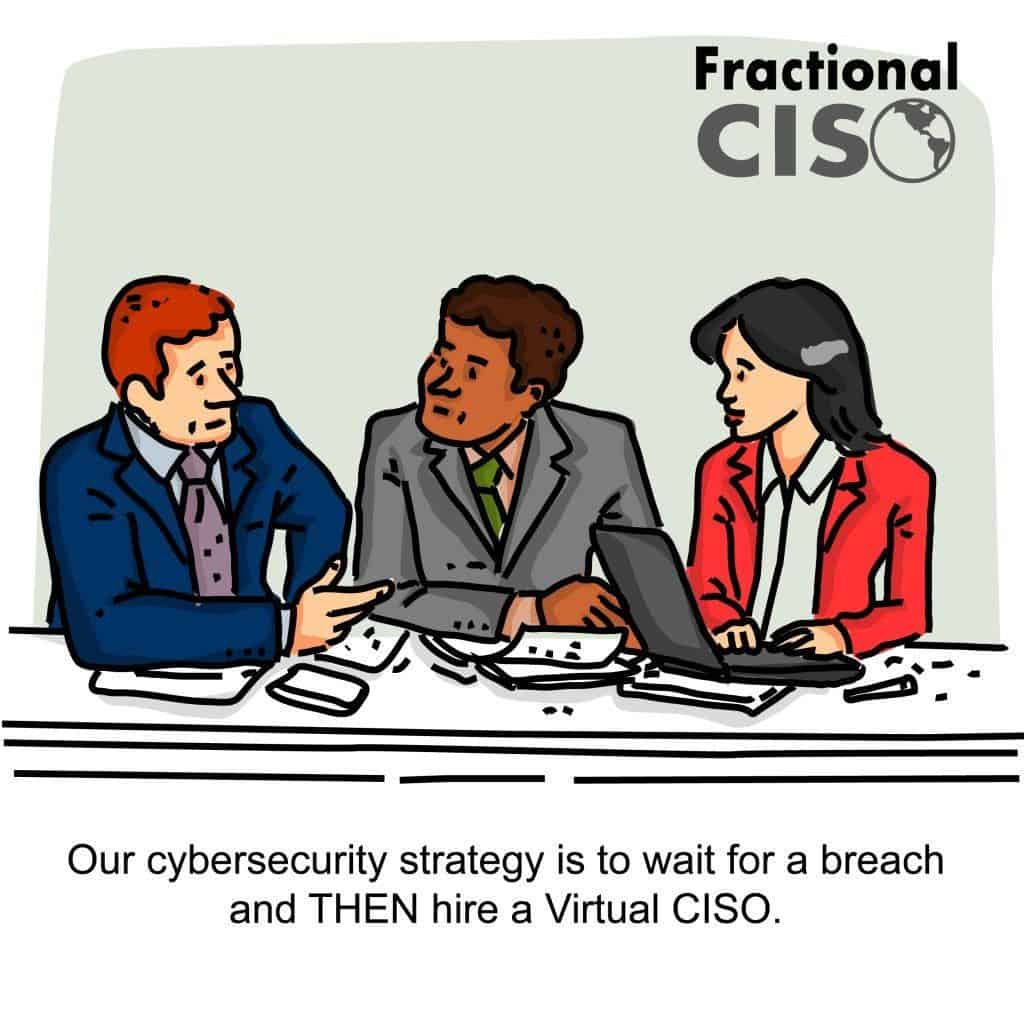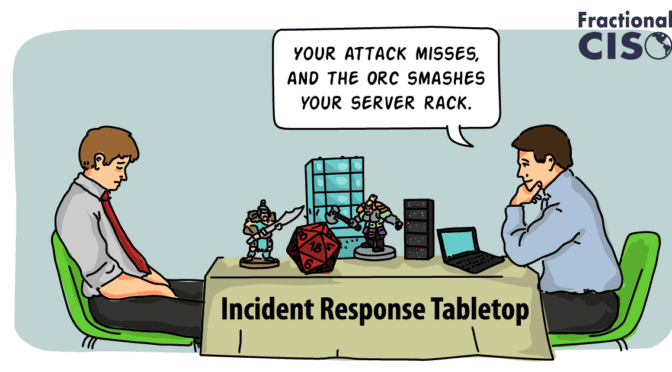Companies are getting aggressive about getting a virtual CISO on board for a number of reasons.
1. Cybersecurity Regulation Compliance
One is the range of new cybersecurity regulations that companies have to deal with. Past industry standards like PCI and HIPAA are now joined by bold new privacy and security rules that change how we view the company’s responsibility to safeguard data. Perhaps the most recent example is the European General Data Protection Regulation (GDPR), that’s having so much of an effect not just in the EU, but around the globalized business community.
2. Cyber Threat Management
Then there are the cautionary examples: data breaches splashed across the front page, chilling tales of pilfered data, identity theft, and commercial loss.
These are two of the biggest drivers toward a CISO strategy that plans for every eventuality, including an empty chair.
3. Create and Maintain Cybersecurity Infrastructure
Far too many organizations wait until disaster strikes before investing in virtual CISO services. This is the wrong way to approach the issue. Instead, it’s best to hire a vCISO while things are still running smoothly. A skilled chief information and security officer will build necessary security safeguards into your company over time, and your business will only grow stronger over time. Hiring a virtual CISO or spending the money to have an in-house CISO will help preserve company profits over time.
If you’re interested in giving your company the best chance for success in the future, onboarding a professional offering virtual CISO services is an excellent investment. This move won’t raise your stock prices immediately, but it could be the improvement that successfully staves off a security breach or another real disaster for your company in the future. Think of this professional as a preventative measure or a safeguard for your company that you don’t want to be without.
4. Cybersecurity Expertise and Guidance
A vCISO brings top-tier expertise and cybersecurity guidance to companies who do not have the need for an in-house professional. A vCISO will help companies to develop and execute strategies to protect against threats.
5. Flexibility and Scalability
Due to the nature of the employment arrangement, virtual CISOs offer flexibility and scalability to align with various types of organizations. vCISOs can provide support during critical periods, offer long-term guidance or strategy, or assist with ongoing projects, adapting their expertise to the organization’s immediate needs.
6. Cost-Effectiveness
According to an article published on ZDNet, the average tenure of a Chief Information Security Officer (CISO) is just 26 months, primarily due to high stress and burnout. This statistic emphasizes the challenges organizations face in maintaining a long-term, stable CISO position. When discussing the cost-effectiveness of hiring a virtual CISO, it becomes evident that the constant turnover and rehiring for such a high-cost position as a full-time employee can be expensive. On the other hand, a virtual CISO firm is unlikely to “leave” its client, providing a more reliable and consistent security solution. This stability further enhances the cost-effectiveness of employing a virtual CISO.
7. Access to Specialized Cybersecurity Tools and Resources
As virtual CISOs are specialists in cybersecurity, they typically have access to a range of tools and resources that are needed to implement a cybersecurity plan. This enables organizations to benefit from the latest technologies without having to fully invest in their own infrastructure.
8. External Perspective
A vCISO brings a unique external perspective to an organization, making it easier to identify potential vulnerabilities, offer new insights, and challenge existing security processes in order to help enhance the overall security posture of the organization.
Any company that values its cybersecurity will come to appreciate the experience that a vCISO brings to the table. With that said, not everyone only wants a PTCISO (part-time CISO). That’s why it’s possible to use a virtual CISO program year-round for long-term protection.
Whether your business decides to change its website infrastructure, test out a new server setup, or alter another piece of technology that’s crucial to your daily operations, a vCISO can reduce common information security concerns along the way.
What Are the Qualifications for Becoming a Virtual CISO?
It’s important for a CISO to have a sufficient background in security and to understand the security landscape. The CISO has to keep up to date with the latest in the security industry. How can you make sure that a prospective CISO is a security expert?
Cybersecurity credentials can help. A CISSP (Certified Information Systems Security Professional) or CISM certificate is just part of the proof of capability for a virtual CISO. The CISO needs to be able to talk intelligently about systems and compliance and translate that knowledge to teams. This role needs to have “people skills” as well as “tech skills” and expertise in the industry. That combination helps companies to safeguard their systems and re-organize for the future business world.
Why Hire a Virtual CISO?
Hiring a Virtual CISO gives companies the assurance of expert cybersecurity guidance without the commitment of retaining a full-time CISO employee. This provides flexibility, cost efficiency, and the numerous benefits of top-tier information security expertise.








